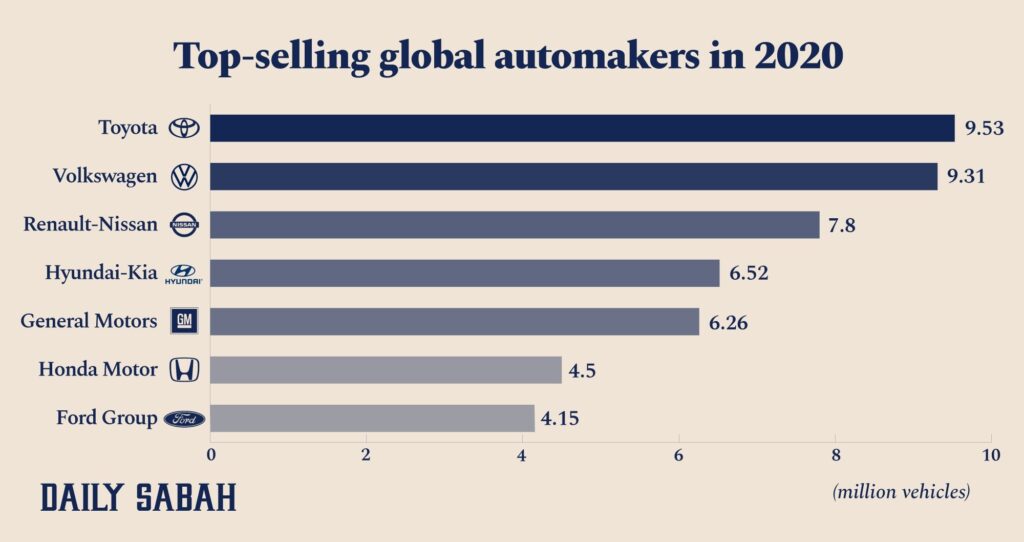Auto domination: good or bad for consumers?

80% of the global automotive industry is dominated by just six firms.
Volkswagen Group owns all of the brands pictured to the left. Due to product differentiation among these different car brands, consumers enjoy plenty of choice.
Furthermore, companies like Toyota and Volkswagen enjoy significant economies of scale because they produce so many cars. Toyota sold close to 10 million cars worldwide in 2020!
Toyota can pass on their lower average costs to consumers in the form of lower prices.


These massive car companies are also hugely profitable. Volkswagen made a profit of $20 billion in 2021 and a lot of this money was reinvested into research and development (R&D).
Without R&D spending, we would not have all these new super-cool developments such as self-driving cars, or the Tesla Cybertruck!
These car producers want to avoid price wars for obvious reasons. Instead, they engage in non-price competition, such as competing on quality. Toyota cares so much about quality that they are even willing to offer a 10-year warranty.
The average lifespan of cars on the road has increased from 8.4 years in 1995 to 12.0 years in 2020.


Another form of non-price competition in the car market is massive spending on advertising.
Ford spent $468 on ad spending per car sold in 2020. But imagine if Ford spent $0 on advertising just like Tesla … buyers of Ford cars might be able to buy a brand-new Ford car for $468 cheaper!
Another problem for consumers is that large firms in an oligopoly market might collude.
In 2014, nine Japanese firms that supply car parts (e.g. seat beats, wheels) were fined for $200 million for price-fixing which is a form of collusion. They agreed in secret to raise the prices of their car parts which meant companies like Ford and Volkswagen had to pay higher prices …

Questions
- State one type of non-price competition. (1)
- What is meant by the term collusion? (2)
- Analyse how car producers may benefit from internal economies of scale. (6)
- Assess whether the oligopoly in the global car market is likely to benefit consumers. (9)
Question 4:
- Paragraph 1 – advantages to consumers
- Paragraph 2 – disadvantages to consumers
